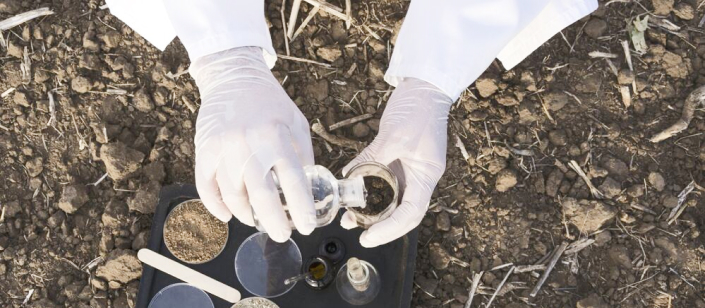Soil analysis
 Do you want to increase your income from each hectare after the harvest?
Do you want to increase your income from each hectare after the harvest?
Then pay special attention to the soil you work with, because it all starts with the soil.
Your plants are as healthy as the soil in which they are located and from which they receive nutrients.
Reduced microbial activity and limited availability of nutrients can lead to the loss of significant yields. After the agrochemical analysis you will receive a full report, conclusions and recommendations for the application of mineral fertilizers.
Maintaining the optimal condition of the soil saves money at various costs associated with the nutrition of crops and the application of mineral fertilizers.
How much money exactly? Research shows that a farmer can save $ 10-15 on fertilizers per hectare by relying on accurate soil analysis reports. And when grain prices are low, then soil analysis becomes even more relevant.
WHY AGROCHEMICAL ANALYSIS OF SOIL IS NEEDED
Only on the basis of a complex agrochemical analysis of the soil can you get competent and reliable recommendations for fertilizing to achieve the planned yield.
You can not overfeed or underfeed crops, it leads to depletion or salinization of soils, reduced yields and quality, unreasonable increase in production costs.
Only with optimal mineral nutrition do we get high yields of excellent quality, and not only preserve soil fertility, but also increase it.
To achieve such high results and requires a complex analysis of the soil, based on which, taking into account the needs of culture and soil properties, you can calculate the introduction of all nutrients in the optimal amount for plants.
WHO NEEDS SOIL ANALYSIS
Carrying out a complex analysis of the soil today is the best solution to the problem of reducing costs in agricultural production for both small farms that do not have the ability to purchase mineral fertilizers in large quantities, and for large producers.
This is achieved by accurate and reasonable application of fertilizers, as well as the ability to plan costs.
WHAT DOES COMPLEX ANALYSIS OF SOIL CONSIST OF
Complex analysis of the soil includes the definition of basic physical and chemical parameters, namely:
- Soil acidity (water, salt, buffer)
- Soil electrical conductivity
- Organic matter content
- Texture (sand%, silt%, clay%)
- Nitrate nitrogen, available phosphorus, exchangeable potassium and sodium
- Exchangeable forms of calcium and magnesium, sulfur sulfate
- Cation exchange capacity (CEC), Percent base saturation (PBS)
- Content of trace elements such as zinc, manganese, copper, iron, boron and molybdenum.
For example, knowing the acidity of the soil, you can choose crops that feel great on acidic soils, the issue of land reclamation is also impossible to solve without defining this parameter. The availability of phosphorus and trace elements also directly depends on the pH of the soil solution.
